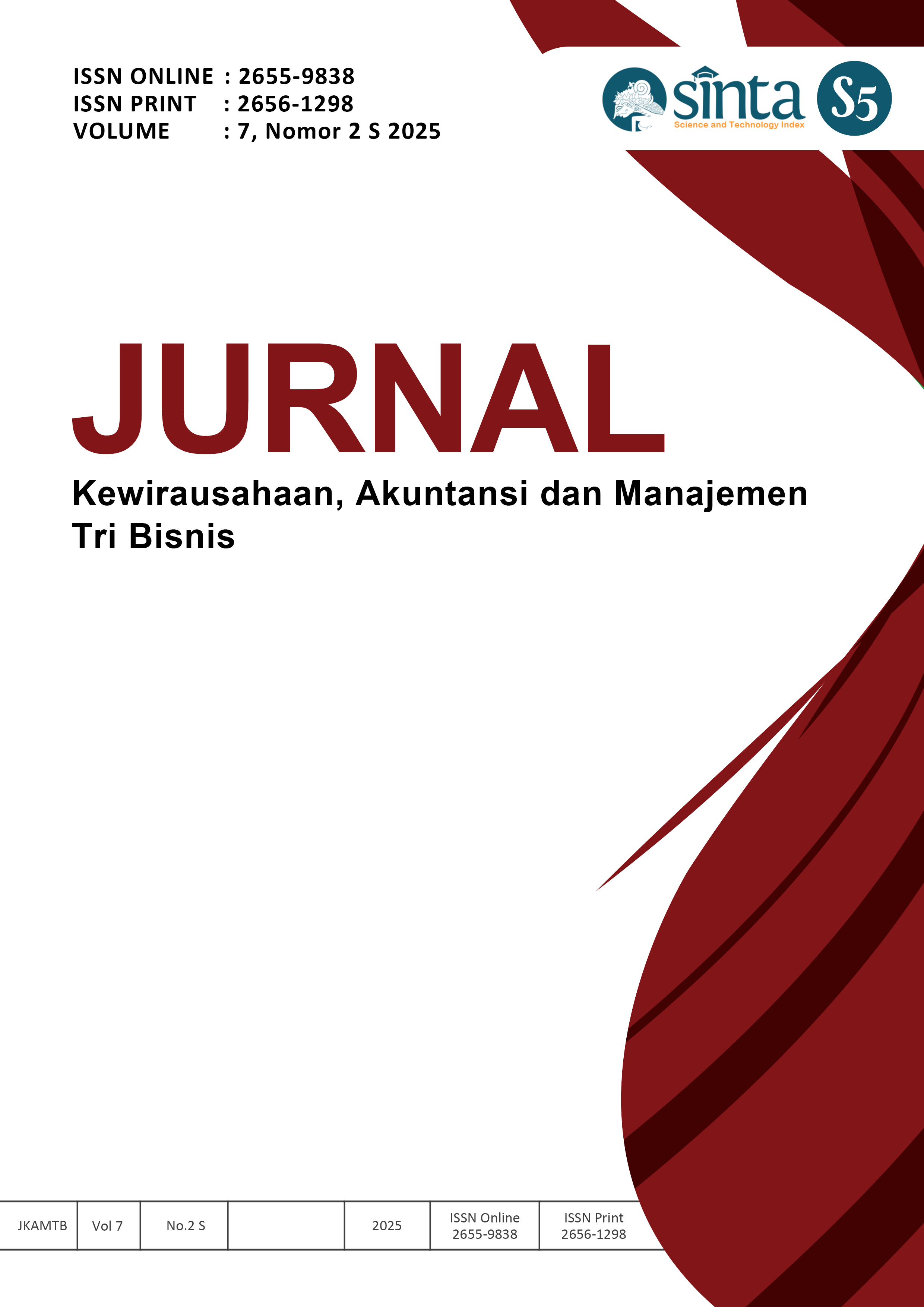Building Academic Integrity: The Influence of Self-Efficacy, Ethical Environment, and Machiavellian Traits on Whistleblowing Intention of Accounting Students in Greater Jakarta
DOI:
https://doi.org/10.59806/jkamtb.v7i1a.629Kata Kunci:
Ethical Environment, Machiavelliane Traits, Whistleblowing Intention, Academic FraudAbstrak
Academic fraud is a critical issue among students, undermining the integrity of educational systems and the quality of graduates. This study examines the impact of ethical environment, machiavellian traits, and self-efficacy on whistleblowing intention in the context of academic fraud among accounting students in the Greater Jakarta area. A quantitative approach was employed, with questionnaires distributed to 471 respondents selected using Roscoe's sampling method. The Theory of Planned Behavior (TPB) was used as the theoretical framework. Data analysis was performed using Structural Equation Modeling Partial Least Squares (SEM-PLS). The results indicate that self-efficacy is the most dominant factor, followed by the ethical environment and machiavellian traits, all positively influencing whistleblowing intention. This study contributes to the development of TPB in the academic context and offers practical insights for educational managers to design policies aimed at preventing academic fraud, emphasizing the importance of enhancing self-efficacy and creating a supportive ethical environment.













